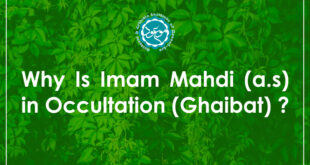Method of Educating the Public
The Emams (A.S.) played a significant role in the area of educating the public, setting examples in educating through the example of one’s own conduct; therefore, their methods of education were not confined merely to spreading awareness through the spoken word but went beyond that to enforcing a strict practical censorship over actions to observe the defects and shortcomings of conduct in the life of others. Here we present three examples of the norms of conduct of Emam al-Rida (A.S.) each dealing with one aspect of man’s practical life:
Yasir, one of his servants, narrates that the Emam’s attendants were eating some fruit one day and they were throwing away a good portion of it uneaten. Abul-Hassan (A.S.) said to them: “Praise be to God! If you have eaten to your fill, there are many who have not; so, you should feed them of it instead.”49
In this incident, the Emam points out to the reality of wanton living which we observe in our life. When we feel that we have achieved full satisfaction of something, be it food or anything else, we do not try to satisfy the need of others for it, but we may even try to spoil it in one way or another without realizing the crime towards humanity implied in an action like that.
Sulaiman ibn Ja’fer al-Ju’fi is quoted saying: “I was in the company of al-Rida (A.S.) trying to take care of some personal business of my own and I wanted to go home. He said to me, `Come with me and spend the night over my house.’ So I went with him and he entered his house shortly before sunset. He noticed that his attendants were working with clay, probably mending stables, and there was a black man among them. He asked them, `What is this man doing with you?’ They said: `He is helping us, and we will pay him something.’ He asked, `Did you come to an agreement with him regarding his wages?’ They said, `No. He will accept whatever we pay him.’ He, thereupon, started whipping them and showing signs of extreme anger.
I said to him, `May my life be sacrificed for yours! Why are you so angry?’ He said: `I have forbidden them so many times from doing something like that and ordered them not to employ anyone before coming to an agreement with him regarding his wages. You know that nobody would work for you without an agreed upon wage. If you do not, and then you pay him three times as much as you first intended to pay him, he would still think that you underpaid him. But if you agree on the wage, he will praise you for fulfilling your promise and paying him according to your agreement, and then if you give him a little bit more, he would recognize that and notice that you increased his pay.”50
Here the Emam tries to point out a significant point related to the system of labour whereby each of the employer and the employee safeguards his rights. Often, disputes erupt about determining the wage the employee deserves in the absence of a prior agreement between the employer and the employee regarding a set wage. By determining and agreeing upon a set wage, each party safeguards its own right without finding a reason to dispute. An increase, though small, in the wage will surely cause the employee to feel grateful and thankful to his employer.
Al-Bazanti is quoted saying:
“Al-Rida (A.S.) had one of his donkeys sent to convey me to his residence, so I came to the town and stayed with a dignitary for a part of the night, and we both had our supper together, then he ordered my bed to be prepared. A Tiberian pillow, a Caesarian sheet, and a Marw blanket were brought to me. Having eaten my supper, he asked me, `Would you like to retire?’ I said, `Yes, may my life be sacrificed for yours.’ So he put the sheet and the blanket over me and said, `May God make you sleep in good health,’ and we were on the rooftop. When he went down, I told myself that I had achieved a status with that man nobody else had attained before. It was then when I heard someone calling my name, but I did not recognize the voice till one of his (al-Rida’s) servants came to me. He said: `Come meet my master;’ so I went down and he came towards me, asked me for my hand to shake and he shook it with a squeeze, saying, `The Commander of the Faithful, God’s peace be upon him, came once to visit Sa’sa’a ibn Sawhan, and when it was time to leave, he advised Sa’sa’a not to boast about his visit to him but to look after himself instead for he seemed to be about to depart from this world and that worldly hopes do not do a dying man any good, and he greeted him a great deal as he bid him good-bye.'”51
In the above anecdote, the Emam (A.S.) points out the significance of realistic spiritual upbringing which is not influenced by external appearances nor is deceived by artificial psychological fantasies, for the reason why others pay attention and show concern may be solely due to seeking their self-interest, or maybe due to a sincere affection, or to any other reason, without any of these reasons being linked to the reality of the self and its significance. The Emam tries to push us to avoid being deceived by anything which would push us away from contemplating upon our real world to which our destiny is tied, and we have to be subjective in our outlooks, assessing our realities without being influenced by casual external factors.
Reluctance to Cooperate With the Rulers
The Emams (A.S.) did not for even one day admit any legitimacy to their contemporary governments, be it Umayyad or Abbaside, due to the fact that those governments were far away from the pristine Islamic system of government and to their deviation, in spirit and in conduct, from the most simple principles and rules of human justice. Executions, deportations, confiscations of properties, transgressions, according to them, all did not hold them legally accountable, nor did they constitute a departure from the principles of creed and equity as long as they in the end served to strengthen and secure the foundations of their governments.
Anyone who appreciates his divine responsibility would try as hard as possible to stay away from participating in shouldering the responsibilities of such governments or making the latter’s job easier, for this would mean his own recognition of their legitimacy and his own admission of their right to exist.
Yes; if the objective of his participation is to alleviate, as much as he can, their injustice and transgression to which innocent believers may be subjected, and to minimize the danger of their ethical and social iniquities which distance the nation from the achievement of an exemplary realization of its mission–if this is the objective, then such participation may be necessitated by one’s own persistent faith, and upon this premise did the Emams refrain from encouraging any of their followers from working for such governments for that would mean assisting the aggressor and strengthening his stance. The only exception was the case when the religion’s interest dictated it. In the latter case, they used to encourage some of their influential followers to take part in the government and be employed by it as was the case of Ali ibn Yaqteen who tried several times to resign from his post at the court of Harun al-Rashid, but Emam Mousa ibn Ja’fer (A.S.) used to encourage him to stay due to the fact that his stay meant removing injustices from many believers and the fending of some of the corruption committed by others.
We can clearly be acquainted with this negative stance of Ahl al-Bayt (A.S.) towards their rulers by examining what al-Hassan ibn al-Husayn al-Anbari tells us about Emam Abul-Hassan al-Rida (A.S.). He says: “I continued writing him for fourteen years asking his permission that I accept a job in the service of the sultan. At the conclusion of the last letter I wrote him I stated the fact that I was fearing for my life because the sultan was accusing me of being a Rafidi and that he did not doubt that the reason why I declined from working for him was due to my being a Rafidi. So Abul-Hassan wrote me saying, `I have comprehended the contents of your letters and what you stated regarding your apprehension about your life’s safety. If you know that should you accept the job, you would behave according to the commands of the Messenger of God (S.A.W.) and your assistants and clerks would be followers of your faith, and if you use the gain you receive to help needy believers till you become their equal, then one deed will offset another; otherwise, do not.'”52
The Emam (A.S.) preconditions for his permission to work for the government that there should be a religious interest which decreases the damage done by the nature of the job; otherwise, it would mean a psychological and factual separation from the pristine principles of Islam and its precepts and an attachment to the corrupt world in which those rulers were living.
How could the Emam ever approve the principle of cooperating with those who played Muslim caliphs and deliberately watered down the divine content of the Islamic message by their and behavioural transgressions which demolished the psychological and spiritual borders separating the nation from the realization of the sins and pitfalls of such transgressions? Theirs were gatherings in which wine was served, entertainers entertained, singers sang, dancers danced, filling the palaces of Umayyad and Abbaside caliphs with immorality. One of them was insolent enough to invite one of those Emams (A.S.) to participate in his drinking orgy as was the case of al-Mutawakkil with Emam Ali al-Hadi (A.S.) which unveils to us the extent of corruption and the extremity of moral decay of the Abbaside caliphate.
It is quite possible that those rulers were aware of the negative attitude of the Emams towards them and their corrupt government systems. We find them, as the anecdote above proves, doubting the loyalty of the individuals who refused to cooperate with them, charging them with Rafidism due to the negative stance adopted by their Emams towards the conduct of those rulers.
Islamic caliphate suffered the tragedy of a humiliating deviation from Islam and a moral decay during the Umayyad and Abbaside dynasties which helped the wide dissemination of corruption and moral decay among various sectors of the ummah. What sort of Muslim caliphs were those whose eyes could not sleep except after listening to the music played by their male and female singers, whose nightly meetings were not complete without the presence of wine and immorality? What type of Islamic reality is this in which a group like that has the full say? How can anyone expect the Emams (A.S.), who were the careful custodians of rights and whose responsibility was to safeguard such rights, to permit themselves and their followers to bear any responsibility in a government led by individuals whose hands were polluted with sins and accustomed to sinning?
The negative stance of the Emams was an obvious call for the nation to be aware of its Islamic mission and principles, a loud cry to wake it up from its slumber to witness the corrupt reality lived by such Islamic “caliphs” due to the reckless and corrupt behaviour of those rulers and their followers who were at the helm of leading the nation.
These are some of the characteristics and qualities which provide us with some of the outlines of the portrait of Emam al-Rida (A.S.), and the picture presented here is not complete in its pristine components which represent the actual context for it, for such a task requires the researcher to rise to grasp the Emam’s loftiness which is impossible to attain by any writer, and nobody can ever describe it no matter how hard he tries.
18 ‘Uyoon Akhbar al-Rata, Vol. 2, pp. 180-183. 19 Bihar al-Anwar, Vol. 49, p. 211, as quoted by Ibn Maskawayhi’s book Nadeem al-Tareef.
20 Bihar al-Anwar, Vol. 49, p. 100. It is narrated from al-Hakim by Abu Abdullah, the hafiz of Naishapur.
21 Ibid.
22 Al Irshad by al-Mufid, p. 291.
23 Manaqib Aali Abi Talib, Vol. 4, p. 300.
24 ‘Uyoon Akhbar al-Rida, Vol. 1, p. 203.
25 Ibn al-Athir, Vol. 5, p. 183.
26 ‘Uyoon Akhbar al-Rida, Vol. 2, p. 184.
27 Al Kafi, Vol. 6, p. 203.
28 Al Manaqib, Vol. 4, p. 362.
29 Al Kafi, Vol. 4, p. 81.
30 ‘Uyoon Akhbar al-Rida, Vol. 2, p. 226.
31 Al Hujurat:13.
32 Ibid., Vol. 2, p. 174.
33 Al Kafi, Vol. 4, p. 23.
34 Al Hujurat:13.
35 ‘Uyoon Akhbar al-Rida, Vol. 2, p. 237.
36 Al Kafi, Vol. 6, p. 298.
37 Kashf al-Ghumma, Vol. 3, p. 147; Surat Al A’raaf:32.
38 Al Kafi, Vol. 6, p. 516.
39 ‘Uyoon Akhbar al-Rida, Vol. 2, p. 178.
40 Al Kafi, Vol. 1, pp. 316-319.
41 Kashf al-Ghumma, Vol. 3, p. 143.
42 Al Kafi, Vol. 3, p. 502.
43 Al Kafi, Vol. 4, p. 24.
44 Al Manaqib, Vol. 4, p. 361.
45 Ibid., Vol. 2, p. 360.
46 Al Balad:11.
47 ‘Uyoon Akhbar al-Rida, Vol. 2, p. 264.
48 ‘Uyoon Akhbar al-Rida, Vol. 2, p. 8.
49 Al Kafi, Vol. 6, p. 297.
50 Al Kafi, Vol. 5, p. 288.
51 Qurb al-Isnad, p. 222, and Al Kharaij wal Jaraih, p. 237, with a slight textual variation.
52 Al Kafi, Vol. 5, p. 111.
 Mouood Mouood English Edition
Mouood Mouood English Edition




